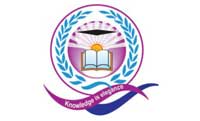notifications
B.A. Journalism
B.A. Journalism

A Bachelor of Arts (BA) in Journalism undergraduate course is a dynamic three-year program that equips students with essential skills and knowledge for a journalism and mass communication career. It covers a comprehensive curriculum, including journalism fundamentals, reporting, writing, editing, media laws, and ethics. Additionally, students gain expertise in digital journalism, multimedia production, and photojournalism, preparing them for the evolving media landscape. Through a blend of theoretical learning and practical experiences, students develop a deep understanding of media's role in society and acquire the tools needed to excel in print, broadcast, online, and multimedia journalism careers.
Eligibility
Eligibility for a BA in Journalism requires completion of 10+2 education or equivalent with at least 50% aggregate marks from a recognised board or university.
Curriculum
The curriculum for a Bachelor of Arts (BA) in Journalism is designed to provide students with a well-rounded education in journalism and mass communication. It typically spans three years and covers a variety of subjects to prepare students for careers in the ever-evolving field of journalism.
Foundation Courses:
Students start with foundational courses introducing them to the world of journalism, its history, and its role in society.
Reporting and Writing:
This forms the core of the program, teaching students the skills needed for news reporting, feature writing, and journalistic writing styles.
Media Laws and Ethics:
Understanding the legal and ethical aspects of journalism is crucial, and this subject covers media regulations and ethical standards.
Editing and Layout Design:
Fundamentals of editing, proofreading, and page layout design for both print and digital media are taught in this course.
Digital Journalism and Multimedia:
With the digital age in focus, students learn about online journalism, multimedia reporting, and managing social media for journalistic purposes.
Radio and Television Journalism:
Basics of radio and TV reporting, scriptwriting, and production techniques are covered.
Photojournalism:
Students acquire skills in visual storytelling, photography techniques, and using images effectively in journalism.
Media and Society:
This subject explores the role of media in shaping society, culture, and politics.
Research Methods:
Research skills and methodologies relevant to journalism are taught to help students conduct meaningful investigations and studies.
Internship:
Practical training and work experience at media organizations provide students with real-world exposure to the field.
Elective Courses:
Depending on the institution, students may choose elective courses in specialized areas like sports journalism, environmental journalism, business journalism, etc.
The BA in Journalism program balances theoretical knowledge with hands-on experience, enabling students to enter careers in print, broadcast, online, and multimedia journalism, public relations, advertising, and other media-related fields. Please note that the curriculum may vary between universities and colleges, but these are common components found in many programs. Future Prospectus BA in Journalism offers promising career prospects in the dynamic world of media and communication. Graduates can pursue roles as journalists, reporters, editors, and content writers in print, broadcast, online, and multimedia journalism. They can also excel in public relations, advertising, corporate communications, and social media management. With digital media's growing influence, opportunities in web journalism, blogging, and content creation are abundant. Additionally, career paths extend to media research, media management, and entrepreneurship in the media industry. As storytellers and communicators, journalism graduates play a pivotal role in shaping public discourse and can thrive in diverse sectors that rely on effective communication.



